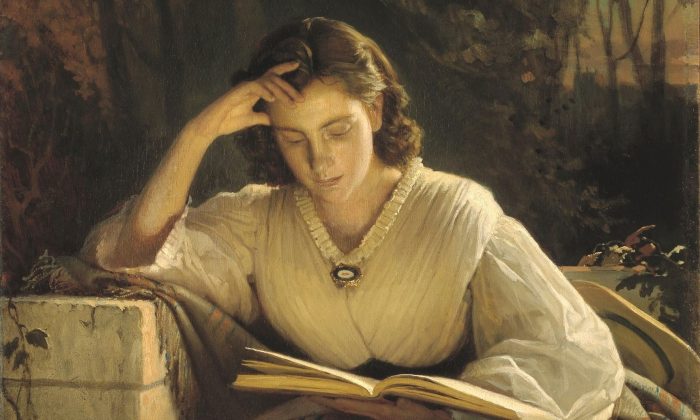
This is a great list and i do suggest that you make that effort to have read all of them, sooner or later. Personally i have read them all throughout my life and most often as a teenager. To have lived and not read is unimaginable. It is too like living a life in which most is left on the cutting floor. What are you thinking? There is no faster way to absorb an unique expereince without actually living it.
Watching it dulls soon enough when you can engage your mind to produce a living world through a book.
The techno revolution has mostly sorted itself out and it has become time to step back and redevelop our reading skills in support of contemplative meditation..
A detail from “Reading Woman” (portrait of artist's wife), after 1866, by Ivan Kramskoy. (Public Domain)
Great Books I Wouldn’t Want to Be In (And Some I Would!)
March 31, 2019
Updated: April 4, 2019
If there’s something book lovers like almost as much as
reading books, it’s talking about books. About the plot details. About
the characters. About the meaning. We feel for and with the
characters. We immerse ourselves in the details. We virtually put
ourselves into the stories.
Just for fun, I thought I would imagine what it would be like to be a character in the works of a selection by well-known authors. I imagined
myself being an inhabitant in the world and story the author created,
not always the protagonist, and not necessarily as myself. It turns out,
I would not like to be in many of them as much as I enjoyed reading them.
What follows is my rating of each. The authors are listed chronologically by the dates of their birth.
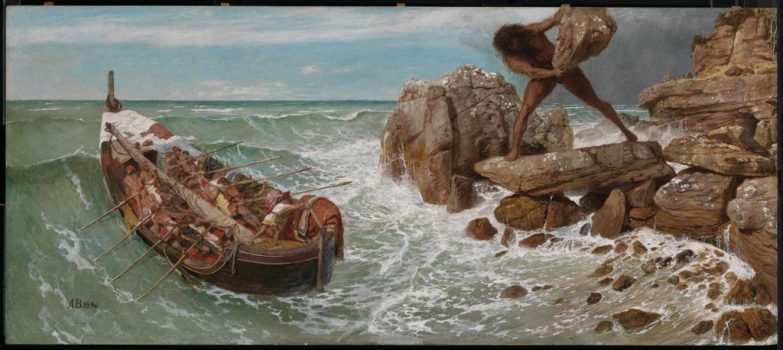
👎 Just kill me first.
There are many unpleasant ways to die in “The Iliad” or “The
Odyssey.” I would consider myself lucky if I were killed off in the
Trojan War in “The Iliad” rather than head home victorious, say no to
drugs, resist the temptation of the siren song, avoid becoming a Cyclops
snack, skirt a whirlpool while at the same time not being swallowed by
the six-headed Scylla, to ultimately be drowned in a sea storm as
punishment for eating a steak. Call me weak.
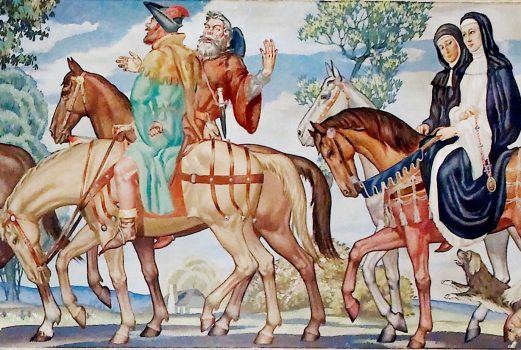
👍 Count me in!
Basically, in “The Canterbury Tales,” I get to go on a long
pilgrimage on foot, to the shrine of Thomas à Becket, with a passel of
mix-and-match mates, telling and listening to entertaining tales along
the way. Accommodation in inns is assured, and the whole thing is
entirely voluntary. What’s not to like?
William Shakespeare (1564–1616, English)
👍👎 To be, or not to be in his works?
I’ll go with his comedies, but pass on his tragedies. Who would
wholly opt out of the chance to speak the brilliant dialogue penned by
The Bard, maneuvering in and out of hilarious plans within plans? The
beauty of it is, anyone with a penchant for the stage can be in them! Shakespeare wrote plays!
Jane Austen (1775–1817, English)
👍 My good opinion of the prospect has been easily gained.
On the liability side, I would almost certainly be a poor young woman
with little prospect of a good marriage. But on the asset side, by
Austen’s reckoning, “poor” means that I can afford only one servant. Balls
and walks in the English countryside are guaranteed. Best of all, my
witty personality will result in my becoming the wife of a man in
possession of a good fortune (and handsome, in the bargain).
Charles Dickens (1812–1870, English)
👎 Low expectations for this one.
What I don’t understand is where the expression “A Dickens
Christmas” came from. Haven’t those who use the phrase read any of
his masterful books? A true Dickens Christmas is sure to be populated
with selfish, gruesome, underhanded, and unlikable figures if it were
anything like his books. I would definitely not like to enter a world
like that.
Charlotte, Emily, and Anne Brontë (1816–1855, 1818–1848, 1820–1849, English)
👎 I would always rather be happy than be in their books.
These gals can write! But they can write me out of
their novels. Gothic romance and melodrama is not for everyone. The
damp English weather may not have been conducive to good health and
cheerfulness for these young ladies, but it did wonders for their
creative imagination. As a potential character in their books, I opt for
less of the moors.
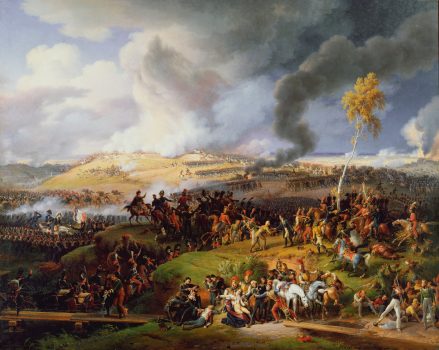
👎 Nyet.
For space considerations, I’m lumping together these two Russian
literary geniuses. Remembering the names and nicknames of hundreds of
people and the faces they go with is not my forte. And I like to be
happy. While I might learn great moral lessons, if I had to be in one of
their books, I just might throw myself in front of a train.
Jules Verne (1828–1905, French)
👍 I’m sure to go far in his books.
Adventure
on the cutting edge of future Steampunk technology with plenty of
financial resources—and a servant—actually appeals to me. It would be
like a science field trip to plunge the depths in Captain Nemo’s
Nautilus, or explore the depths of the Earth. Or a speed vacation,
circumnavigating the globe in 80 days. I’d go a long way for inclusion
in Verne’s novels. Perhaps even 20,000 leagues.
Mark Twain (1835–1910, American)
👍 Any friend of Twain’s is a friend of mine.
Not unlike the celebrated frog of Calaveras County, I’d jump at the
chance to be in any of Mark Twain’s books. (Though, I’d better be sure
no one filled me with a handful of shot first.) Fun, adventure, and more
than a handful of sharp American wit fill his pages.
Oscar Wilde (1854–1900, English)
👍 I would earnestly enjoy being in some of his works.
Delightfully
convoluted first-world problems, those lovely late Victorian fashions,
and happy endings! Sounds like an ideal marriage to me! But please, I’d
rather not be in “The Picture of Dorian Gray.”
Kenneth Graham (1859–1932, English)
👍 Believe me, there would be nothing half so much worth doing as messing about in this book!
Although “Wind in the Willows” is a talking-animal book, it ought to
be in every well-read adult’s library. Friendship is the main thing
here. There is plenty of lolling about in boats, picnicking, and
visiting neighbors. The main turmoil comes from Mr. Toad’s wild streak,
which necessitates continual rescue by his faithful friends. Graham’s
idyllic English countryside is one I would inhabit with enthusiasm!
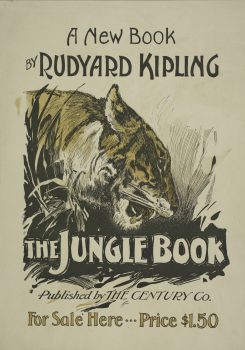
👍 I have the courage for this.
I’d have to be raised by wolves to not want to be in his books. Oh, wait. I’d probably enjoy it even more if I were raised
by wolves, like Mowgli in “The Jungle Book”! Excitement, rites of
passage, and becoming a grown-up are the advantages Kipling’s characters
enjoy in his jungle and sea adventures.
Jack London (1876–1916, American)
👎 I don’t hear the call of his books.
I admit, the foremost reason I do not wish to be in London’s books
stems from my aversion to being cold. I could not bear to be cast in a
scene in which the temperature is 50 degrees below zero. And you just
can’t trust this author to let your hands work well enough to strike a
match to start a fire. I’m not going there.
P.G. Wodehouse (1881–1975, English)
👍 What ho! I’ll go!
I would generally get to hobnob with the upper classes of the
unrealistically idyllic 1930s England. His characters are endearing, and
the hilarious predicaments he creates are thoroughly G-Rated. Yet, his
stories are peppered with references enjoyed by the well-read and highly
educated. I would let Wodehouse write me into anything!
J.R.R. Tolkien (1892–1973, English)
👎 They can go without me.
I once went on a 22-mile hike over two days. That was enough for this
not overly outdoorsy girl. These people (and hobbits, and dwarfs, and
elves, and whatever else) were on their arduous, dangerous, Middle-earth
saving journey for over six months—one way!
C.S. Lewis (1898–1963, English)
👍 Did someone say wardrobe?
I’m not up for inclusion in his space trilogy, but I’d be willing to
go to Narnia. Finding a secret passage to a mysterious, magical world
filled with potential danger wouldn’t be so bad, under the providential
protection of a good, albeit not tame, lion. Who wouldn’t want to
encounter centaurs, winged horses, and all manner of mythical
characters?
George Orwell (1903–1950, English)
👎 I vote No.
Orwell is mostly known for dystopian political commentary. Dystopia
is not my ideal place to hang my hat. Mostly, his books make you glad
you don’t live there, and that’s the point. Despite my
reluctance to be in them, I do want to put in a good word for one of his
more humorous and delightful novels, “Keep the Aspidistra Flying.” I
still don’t want to be in it, but I assure you, it has an uplifting,
buoyant ending.
Evelyn Waugh (1903–1966, English)
👎 A vile idea.
Waugh may be a great writer, but even in his masterful novel
“Brideshead Revisited,” one finds no character truly lovable. I get the
feeling that even Waugh didn’t like them. Who knows what he might do
with me in one of his books!
Flannery O’Connor (1925–1964, American)
👎 Ahhhhhhhhhhhhhhhhhhhhhhhh!
Weird. Southern Gothic. Grotesque. Be sure to read them all!
Why Live It If You Can Read About It?
It is interesting that at least half the great books I considered were stories I would not want to enter, but loved reading.
Literature allows us to gain a breadth of experience that our own
circumstances would not permit and at very little expense to us. A good
writer can show us the world. He or she can take us into battle,
demand rigorous moral discrimination, and allow us to grapple with evil,
unharmed. We then step back into our mundane lives better people than
we were before.
For this, I am truly grateful to the gifted authors of the past.
Susannah Pearce has a master’s degree in theology and writes from her home in South Carolina.
No comments:
Post a Comment